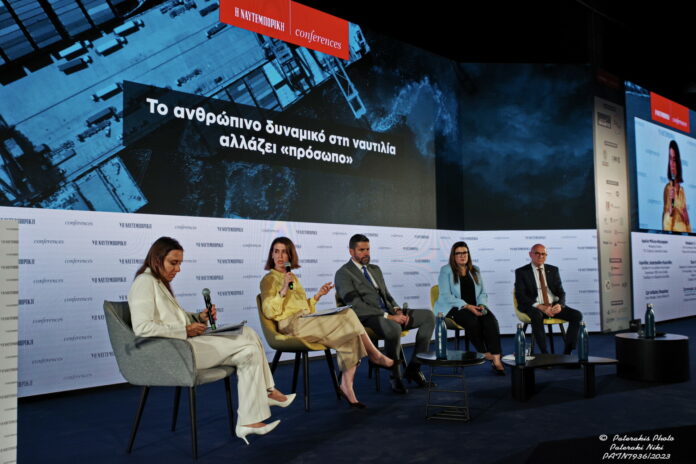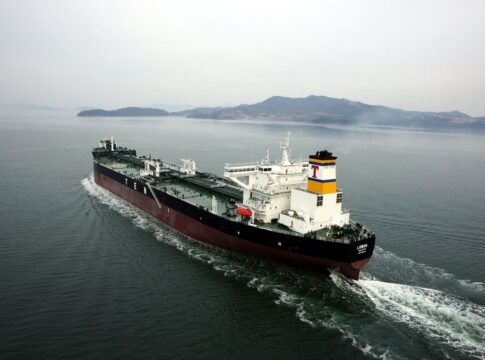The participants in the 5th panel of the 7th Naftemporiki Shipping Conference stressed the need for campaigns that will inform young people about shipping education and the opportunities offered by the sector.
The panel was moderated by Aspasia Pastra, Associate Research Officer, Maritime Policy & Ocean Governance.
During the discussion, Pastra cited estimates that in 2026 we will have a shortfall of 89,000 seafarers and a 9% shortfall of naval officers. So how can we attract valuable and properly trained staff?
Amalia Miliou-Theocharakis, Deputy Managing Director, TEO Shipping Corporation Greece, underlined the importance of making the staff’s life better as they spend 75% on the ship and 25% on land. For example, she said there could be a gym, fast internet to connect with their family, etc., there should be a proper mix of crews, because we have different cultures.
Attracting human resources is becoming more and more difficult worldwide, not only in Greece, said Theofilos K. Xenakoudis, Chief Commercial Officer, International Registries, Inc. (IRI).
As he said, Greece definitely needs more campaigning by shipowners to attract valuable personnel. “Everyone wants to work in shipping, but not on ships,” he noted and added that we live in a rapidly evolving environment. “We all have to adapt to the new conditions. Lifelong learning is very important,” he underlined.
On her part, Elpi Petraki, Operations & Chartering Manager, ENEA Management Inc., 2nd Vice President, Association of Short Sea Shipping Shipowners │President of WISTA International, underlined that as technology evolves very quickly it is essential to have a single framework of training standards. “This is the main issue, but no one insists. It is the most important thing because we will not be able to move forward,” she noted.
One issue highlighted during the discussion is the extremely low proportion of women working on ships (under 2%). In fact, 94% of these female sailors are on cruise ships.
In order to increase the participation of women, the participants estimated that there should be a culture change, a change to the state of mind and the way of thinking. It is also particularly important to have the relevant regulatory framework, supervision, as well as also a special office to which one can turn.















